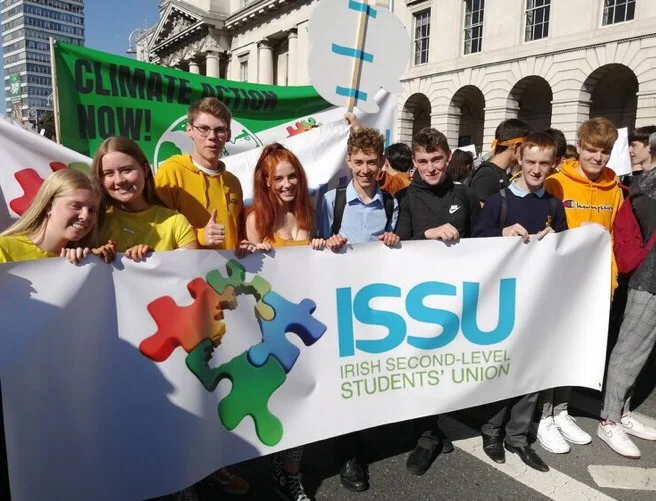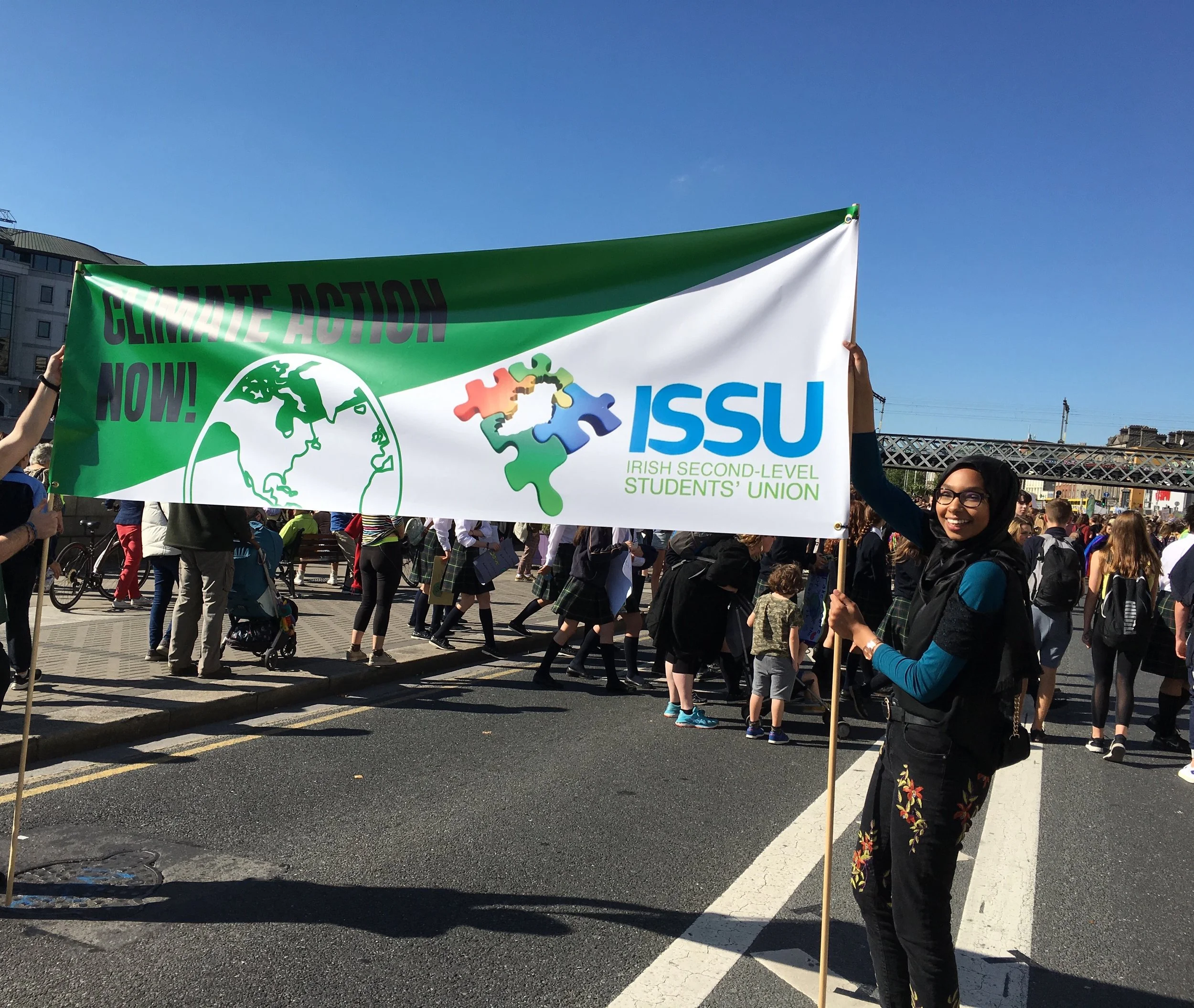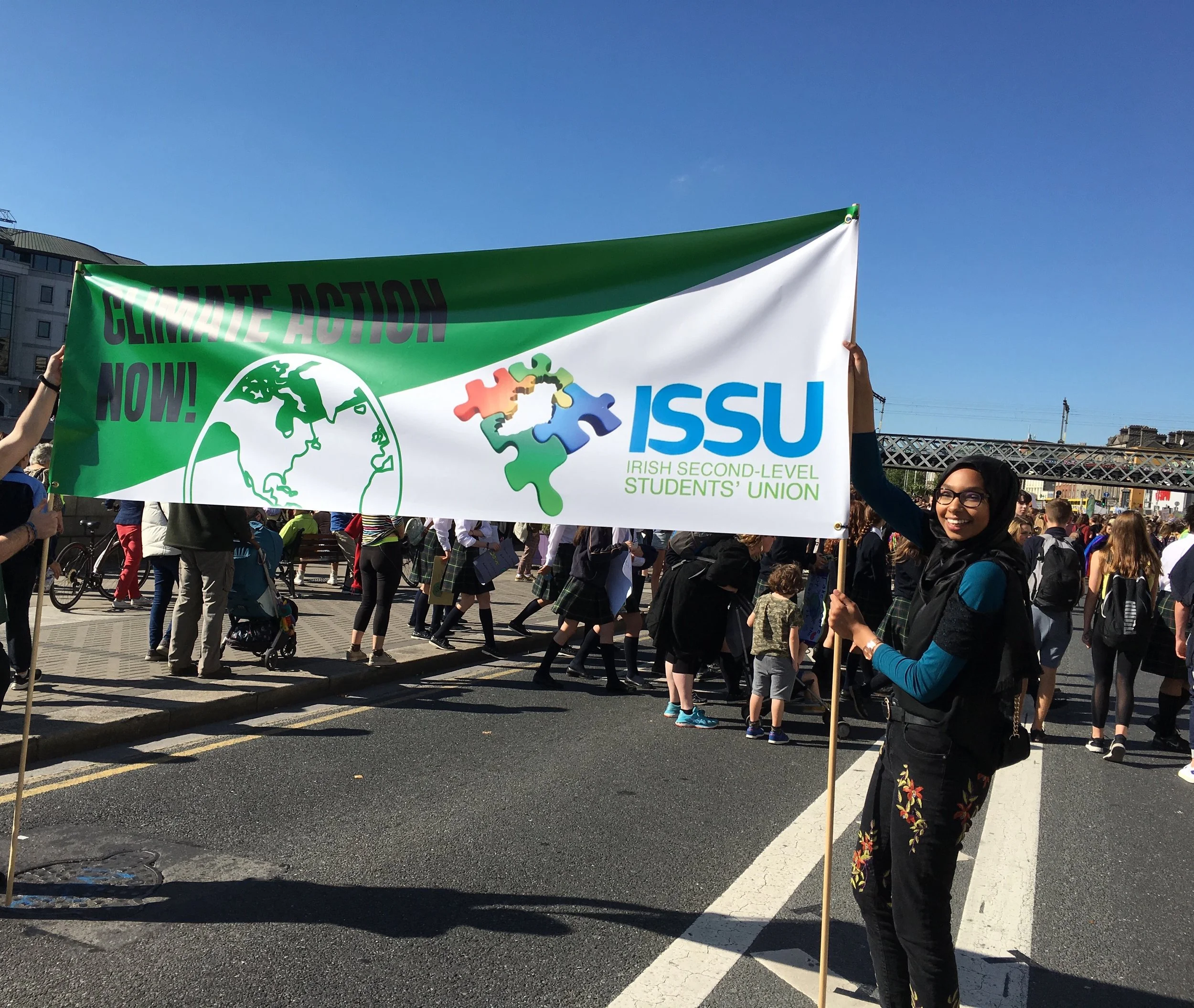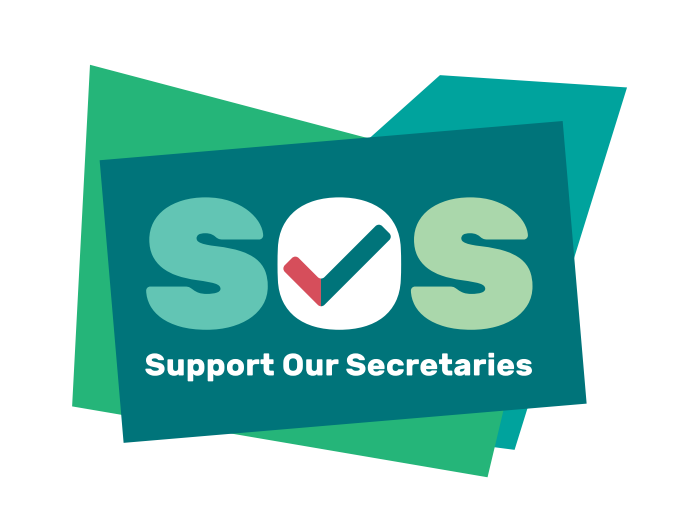Anti Nihilism - Things Will Change
Why your friends think things won’t get better
If you’ve spent time talking to less-engaged students about activism you’ve probably encountered at least one form of nihilism at some stage (and perhaps you’ve felt it yourself at some point). This feeling that nothing can get better and that change isn’t possible is oddly pervasive as of late - especially among us young people. But what exactly is this nihilism, what causes it and how can it be countered?
In order to get a solid definition of what nihilism actually is we need to turn to the work of the late theorist Mark Fisher. In a 2006 blog post entitled “Reflexive Impotence” Fisher argues that British students “know things are bad, but more than that, they know that they can’t do anything about it. But that ‘knowledge’, that reflexivity, is not a passive observation of an already existing state of affairs. It is a self-fulfilling prophecy”. Fisher goes on to argue that because of this impotence a majority of the students he taught were stuck in a state of so-called “depressive hedonia”. In other words, Fisher argued that when we as students were faced with the ever-worsening realities of our times we responded by (understandably) losing ourselves in comfort food, Netflix specials and all-nighters. But what leads to this nihilism?
In my opinion, the main cause of this nihilism is what I’m going to refer to as “cynical realism”. We as students are perpetually told by the press, pundits and politicians that the current way of doing things is the only way of doing things and that alternatives do not exist.
The defenders of the status quo no longer bother claiming that the current way of doing things is the best method (or even a good method in the first place) but instead that it is the only feasible method and that anything else is a pipe-dream for radicals and cranks. When we rally against the impending catastrophe of climate change we’re treated as crazy radicals for having the “unrealistic” dream of wanting a planet to live on.
When we advocate for a fairer education system we’re met with a cynical shrug veiled behind the language of pragmatism. When we propose compromise solutions and call for reform in our systems we’re treated as if we’re trying to tear them down. Cynical realism saturates our press and politics to the point where we unintentionally internalize it. If you hear something over and over again it slowly seeps into your thoughts. Eventually it does seem as if change isn’t viable, as if things can’t get better. This is where the main irony of cynical realism lies - if we hadn’t internalized it change would have been possible. In other words, it’s useless unless it’s in our heads.
So how do we overcome this nihilism? The answer is currently staring us right in the face in the form of the climate strikes. When Greta Thunberg first staged a climate protest just thirteen months ago she sat alone. However, by daring to take a stand and by daring to go against what is cynically perceived as “realistic” by the press she was able to foster a worldwide movement, inspire real change and gain the attention (and derision) of world leaders. She went from being just one student sitting outside of Swedish parliament with a sign, to the spearhead of a global movement addressing the United Nations. Change is possible, regardless of what we’re cynically told. A better, fairer future is within our grasp - even if snarky op-ed writers claim otherwise. Although it sounds clichéd, the best, most effective response to this nihilism is simple - daring to dream and taking a stand.
By Ciarán McEvoy
We Are More than A Photo-Op
There is an unfortunate trend of political figures using the climate protests for electoral gain.
There is an unfortunate trend of political figures using the climate protests for electoral gain
On Friday the 20th, over 15,000 Irish teenagers took to the street for a global protest demanding climate action. In what was a thrilling feat of passion and organization, thousands upon thousands of people showed up to march and declare loudly that climate change is the pressing issue of our time. It was screamed at the top of our collective lungs that political change for climate action is necessary, immediately.
But if you are part of a political apparatus, there’s a more cynical view. Upon looking at these street protests, there is one thing to be seen : thousands and thousands of future voters. It is clear that the gathering crowds are civically engaged members of society. And in the eyes of politicians, these individuals are ripe for the political plucking. So every party wants to get in at the ground floor, and try convince as many young ones as possible that ‘climate action will happen, so long as you vote for us!’
To a degree, this could be acceptable. Each party could go about its ways in convincing voters that they are genuine and serious and proactive on climate change. They can pledge lower carbon emissions ceilings, higher renewable energy subsidies, comprehensive public transport plans and investment in other green technologies, all in the hopes of winning over the future voters of Éire. And sure, this is essentially the end goal. But what is not acceptable is the way that certain elements of the political sphere have been reacting to these protests.
Unfortunately, this message has not always been heeded by the political apparatus. Several government officials, including ministers, have been decried as using the protests as ‘a photo op’. These instances were not unique, but happened across the political spectrum. In a quite telling fashion, after the September 20th protests, political parties released heavily-edited publicity videos, self-empowering photos decorated their social media, all with the striking youth reduced to mere props. In what seems to be recurring motifs. these protests are in fact used as a stage for attacks on political opponents, often the incumbent government or close political rivals.
Furthermore, a handful of political parties were criticized for setting up political stands at the protests, handing out leaflets and displaying banners, despite being explicitly told by the organizers to abide by the non-political ethos.
This shows how the political agendas and politics-as-usual attitudes can permeate something that is the antithesis of daily politics. As such it is our duty to call these instances out. Politicians who want to acknowledge the crisis should do so, should attend protests, should fight for the environment, and primarily should use their voice to raise up those of others - but must face the fact that society does not revolve around the next election.
By Ciarán Meers
Spreading Seeds-Evaluation Seminar in Spain
From the 15th to the 22nd of September, our president, Ciara and Seeds For Integration Working Group members, Matthew and Matas attended the 20th edition of the University on Youth Development (UYD) in Mollina, Spain, as part of an evaluation seminar of our working group’s progress.
OBESSU are running a 3 pillar grass root project called Seeds for Integration. ‘Seeds’ promotes and advocates the inclusion and integration of migrant, refugee and asylum seeker students in 2nd and 3rd level education across Europe.
ISSU became involved with the project in late 2018, with our working group focusing on the injustices that refugee and asylum seekers face when accessing 3rd level education in Ireland. We successfully ran our ‘Prospects not Provision’ project, with a collaborated conference with MASI due in October in Trinity College.
This year the Evaluation Seminar for our project was held in CEULAJ, Mollina, Spain as part of the UYD. The UYD gathers representatives from different youth organisations and youth movements to discuss, train and be trained around the main issues on the global agenda.
The week consisted of workshops learning how to make communities more intercultural and how asylum seekers, reugees and migrants can become included in society, rather than segregated. We had plentiful representation from student unions across Europe presenting on the ‘Seeds’ project for the project cycle evaluation.
ISSU also propposed an lead a Fridays for Futures Global Strike in Mollina!
Overall, a very productive week for our working group and the three of them came back with an even better motivation to destroy barriers in education for the young people of Ireland.


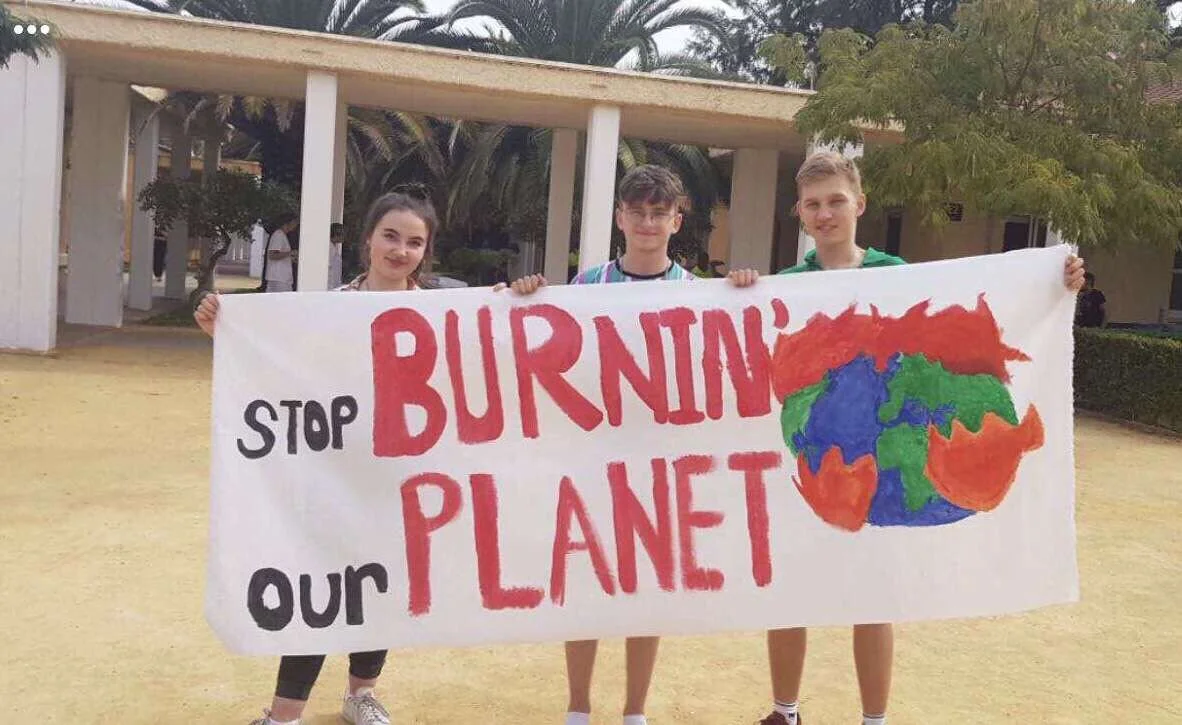
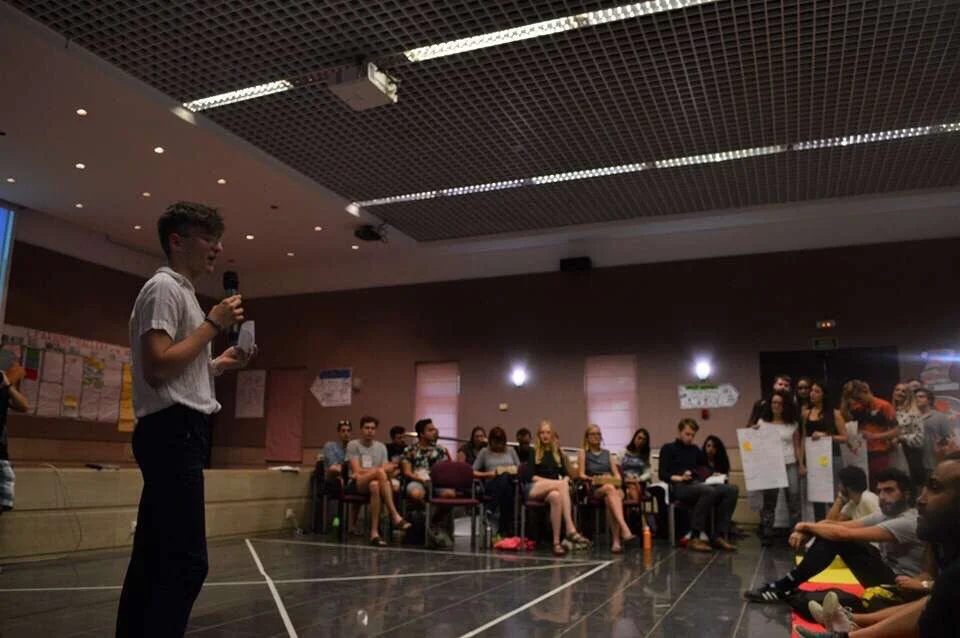
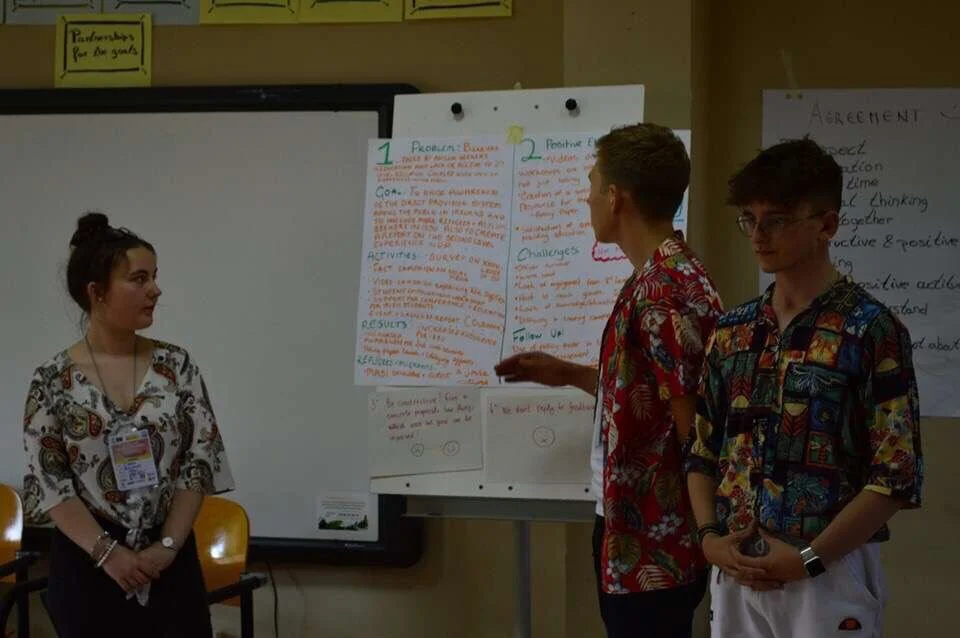
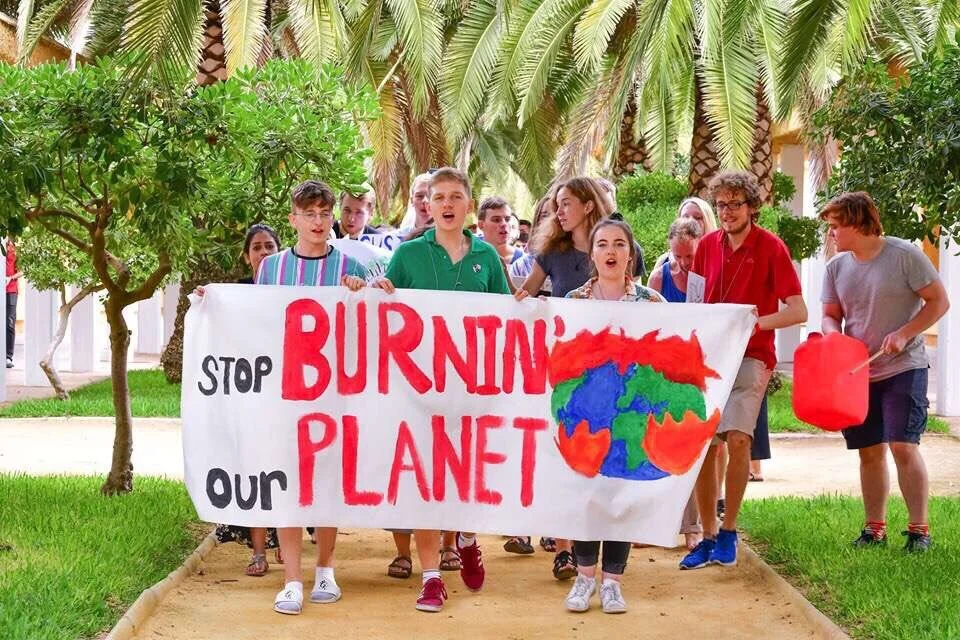
Meet our New Sustainability Officer!
At our AGM back in March, congress voted to add a new officer role onto our NSE — Sustainability Officer. After going through various candidates, it is our great pleasure to introduce Saoi O’Connor as our Sustainability Officer for this NSE term;
“Hi, i’M Saoi O’Connor and I’m a 16 year old climate activist from Skibbereen, Co Cork. I have been climate striking in Cork City for 37 weeks now. I am passionate about justice in all its forms, especially climate justice & sustainability. My work protesting the climate crisis has brought me into a network of like-minded friendships all over the world from Sweden to Uganda to Palestine. I first became involved with ISSU at the Regional Council last year and I’m incredibly excited for the coming year to work with the National Student Executive.”
Saoi will be liaising with Sustainable Development Goals and Climate Action orgs to promote equality and climate justice. They will run environmental campaigns throughout their term and promote the student voice in the midst of climate action.
The role of sustainability officer is one of great importance in this time of extreme lack of understanding of how severe the climate crisis is. It is evident through the strikes and many more campaigns coming through that young people are the only people taking this climate emergency seriously. Hopefully with Saoi and sustainability officers for years to come more of our leaders will step up and do what is necessary to save our future.
You can keep up to Saoi’s work on their twitter here.
ISSU Marching for Climate Action
The Irish Second-Level Students’ Union supports all students across the world who are striking today, Friday 20th September, to demand action on climate change. Tens of thousands of students have been joined by their third-level peers, teachers and workers on this day of climate action. This strike represents the largest to date, with more than 5,000 taking place across the world.
ISSU Sustainability Officer Saoi O’Connor, present at the strike in Cork, noted “The strikes over the last few months have really shown us how powerful voices of the student body all across the world really are, with this issue being brought to the forefront of the public consciousness. This morning Richard Bruton stated that the strikes were no longer necessary, but the number of dissenting voices out there on the street today proves that he is wrong”. Saoi has been striking in Cork every week for the last 36 weeks, and is one of the founders of the Fridays For Future Ireland Movement.
The lead-up to the strike was not without opposition however, with reports of a number of schools announcing to students, staff and parents in the preceding days to not allow students to join the marches. This was met with much backlash by students and activists online. ISSU Honorary President Sarah Harte, present at the strike in Dubin stated “ It is not acceptable that students were being discouraged and threatened with punishment for expressing their opinions on a future that will affect them.This is a climate emergency, and students seem to be the only people treating it like one. We should be encouraged to take an active role and an interest in the world that we are going to live in, and schools should be teaching students to be active citizens, not discouraging them.”
The ISSU will be present at future climate marches, until serious action is taken by those in power. Before it’s too late.
ISSU in Solidarity with School Secretaries
The Irish Second-Level Students’ Union (ISSU) supports School Secretaries who are taking industrial action this Friday 20th September. School Secretaries around the country will engage in a short work stoppage at the beginning of the school day, with work-to rule action thereafter.
School Secretaries are in dispute with the Department of Education “as a result of their refusal to address a two-tier pay system that leaves most earning just €12,500 a year, with irregular, short-term contracts that force them to sign on during the summer holidays and other school breaks” - says FÓRSA.
The ISSU Deputy President, Chloe Griffin expressed the unions solidarity with school secretaries; “The ISSU believes that every member of the school community should be valued and appreciated, and this includes school secretaries. It is not good enough that these vital members of the school community are being treated in this way with their basic working rights being broken. We are united with the secretaries and FÓRSA in their fight to end this long standing pay injustice. Members of the ISSU will also be in attendance at the North Dublin National School Projects work stoppage, and we encourage our members to join secretaries at pickets across the country”.
Protests will be carried out in 250 schools around the country and up to 1000 schools are reported to be affected by the stoppage. Secretaries will protest outside of their schools or may join at another school protest with their colleagues for the duration of the stoppage.
The ISSU encourages students to stand in solidarity with secretaries, and to also attend the marches for climate action taking place later that day.


